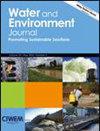卢戈湖(埃塞俄比亚)沿岸大型无脊椎动物群落联系:可持续水资源管理的优先事项
IF 1.8
4区 环境科学与生态学
Q4 ENVIRONMENTAL SCIENCES
引用次数: 1
摘要
在生态质量评估研究中,将水质特征与基于生境图的栖息地质量评估分数(HabQA)相结合很少受到关注。本研究调查了卢戈湖(埃塞俄比亚)大型无脊椎动物群落结构与湖泊栖息地质量和物理化学水质变量的关系。包括12个采样点(8个农业采样点和4个娱乐采样点)。HabQA评分和可溶性活性磷显著解释了大型无脊椎动物数据之间的差异。该研究表明,与其他常规物理化学特征相比,栖息地质量特征对大型无脊椎动物群落结构的重要性更大。我们强烈建议在研究大型无脊椎动物群落结构时使用HabQA系统,以便更深入地了解热带湖泊的环境功能。研究结果表明,有必要对湖泊集水区(包括湿地)进行综合和可持续的保护和管理,以增强湖泊的生态完整性,从而增强湖泊的生物多样性。本文章由计算机程序翻译,如有差异,请以英文原文为准。
Habitat quality–physicochemical water quality–littoral macroinvertebrate community nexus in Lugo Lake (Ethiopia): Priorities for sustainable water resources management
The integration of water quality characteristics with habplot‐based habitat quality assessment score (HabQA) has received little attention in ecological quality assessment studies. This study investigated the macroinvertebrate community structure in relation with lake habitat quality and physicochemical water quality variables in Lugo Lake (Ethiopia). Twelve sampling sites (eight agricultural and four recreational) were included. The variation among macroinvertebrates data was significantly explained by HabQA score and soluble reactive phosphorus. The study revealed the greater importance of habitat quality characteristics in comparison with the other conventional physicochemical characteristics on macroinvertebrate community structure. We strongly recommend the use of HabQA system while studying macroinvertebrate community structure for a deeper understanding of the environmental functioning of tropical lakes. The results suggested the need to apply integrated and sustainable protection and management of the lake catchment (including wetlands) to enhance the ecological integrity and hence biodiversity of lakes.
求助全文
通过发布文献求助,成功后即可免费获取论文全文。
去求助
来源期刊

Water and Environment Journal
环境科学-湖沼学
CiteScore
4.80
自引率
0.00%
发文量
67
审稿时长
18-36 weeks
期刊介绍:
Water and Environment Journal is an internationally recognised peer reviewed Journal for the dissemination of innovations and solutions focussed on enhancing water management best practice. Water and Environment Journal is available to over 12,000 institutions with a further 7,000 copies physically distributed to the Chartered Institution of Water and Environmental Management (CIWEM) membership, comprised of environment sector professionals based across the value chain (utilities, consultancy, technology suppliers, regulators, government and NGOs). As such, the journal provides a conduit between academics and practitioners. We therefore particularly encourage contributions focussed at the interface between academia and industry, which deliver industrially impactful applied research underpinned by scientific evidence. We are keen to attract papers on a broad range of subjects including:
-Water and wastewater treatment for agricultural, municipal and industrial applications
-Sludge treatment including processing, storage and management
-Water recycling
-Urban and stormwater management
-Integrated water management strategies
-Water infrastructure and distribution
-Climate change mitigation including management of impacts on agriculture, urban areas and infrastructure
 求助内容:
求助内容: 应助结果提醒方式:
应助结果提醒方式:


